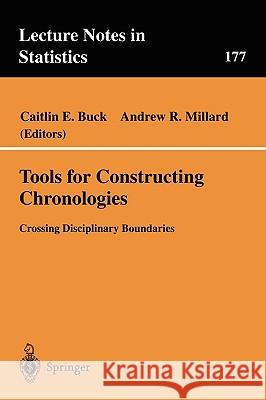Tools for Constructing Chronologies: Crossing Disciplinary Boundaries » książka
Tools for Constructing Chronologies: Crossing Disciplinary Boundaries
ISBN-13: 9781852337636 / Angielski / Miękka / 2004 / 260 str.
In summary, Bayesian methods are already seen by many as an essential tool to aid in formal chronology building in archaeology. At present, most researchers use packages like OxGal and BGal to make use of such tools and typically see them as radiocarbon calibration tools (indeed both are described as such on their own WWW welcome pages). On reflection, however, I think that it is clear that these packages offer more than just calibration, they are modest Bayesian chronological data interpretation environments. Given this observation, and the fact that the current tools are built on a sound foundation offlexible and scalable theory, I think that we are in a good position to move towards fully integrated tools for Bayesian chronology building. All of the current and planned research projects outlined above will contribute to the extension of the framework in one way or another. Since such work is motivated by a desire to provide practical solutions to real, current and pressing issues associated with chronology building, I feel sure that we can look forward to many more years of fast moving, productive and practical research in Bayesian chronology building. References Ammerman, A. J. and Cavalli-Sforza, 1. L. (1971). Measurement of the rate of spread of early farming in Europe. Man, 6, 674-688. Ammerman, A. J. and Cavalli-Sforza, 1. L. (1984). The Neolithic transition and the genetics of populations in Europe. Princeton University Press, Princeton. Anderson, A., Allingham, B. and Smith, I. (1996a).











